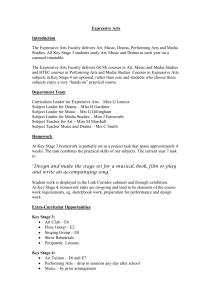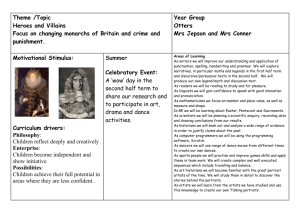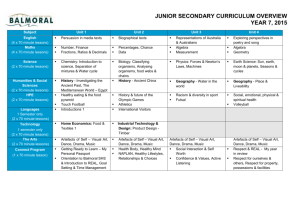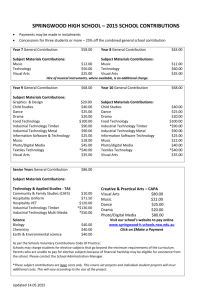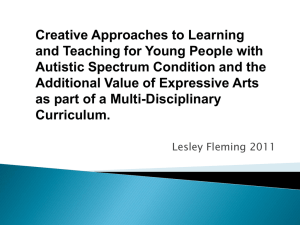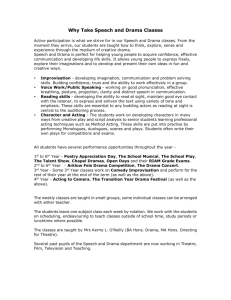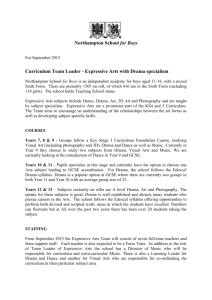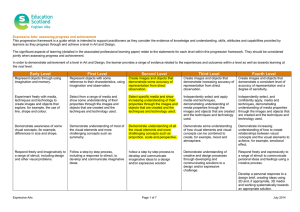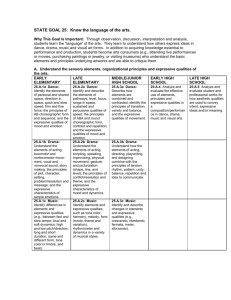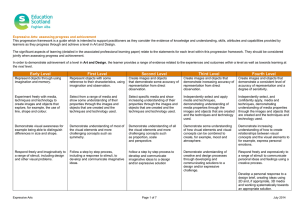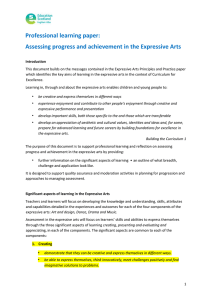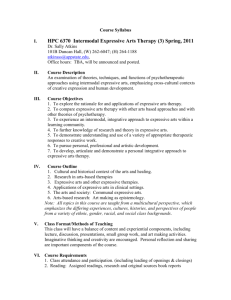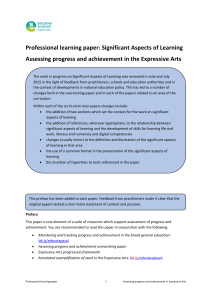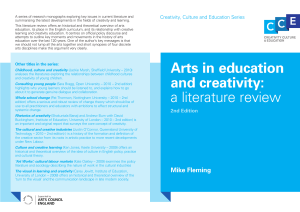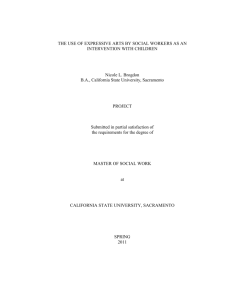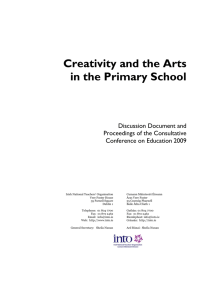SMSC in Expressive Arts - Crown Hills Community College
advertisement
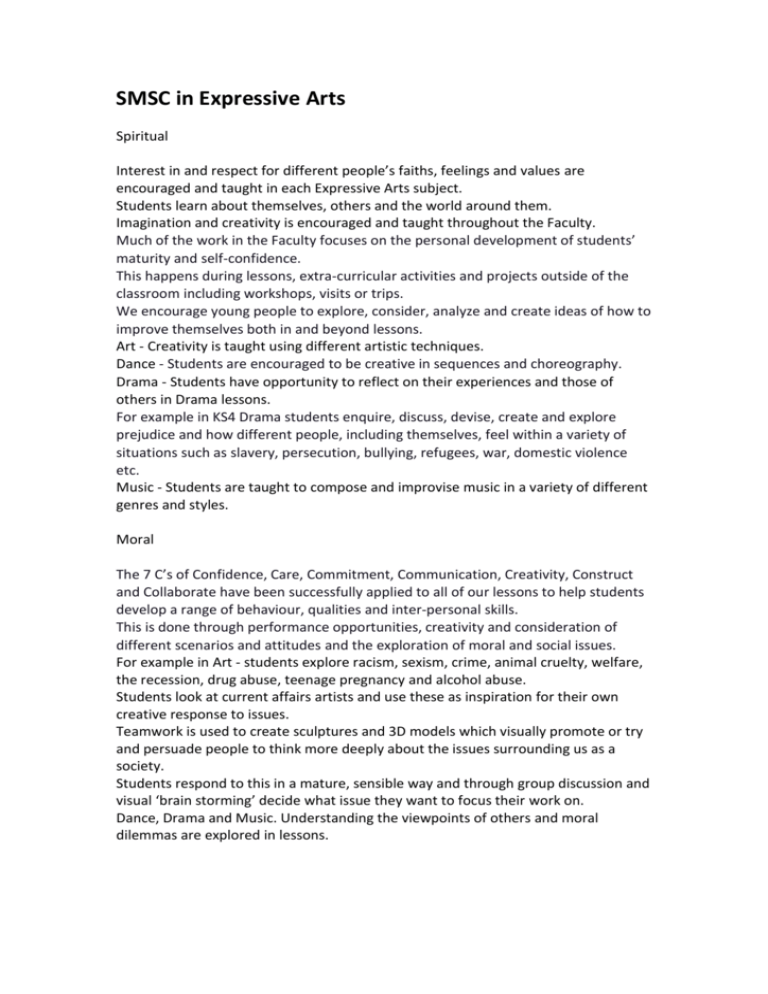
SMSC in Expressive Arts Spiritual Interest in and respect for different people’s faiths, feelings and values are encouraged and taught in each Expressive Arts subject. Students learn about themselves, others and the world around them. Imagination and creativity is encouraged and taught throughout the Faculty. Much of the work in the Faculty focuses on the personal development of students’ maturity and self-confidence. This happens during lessons, extra-curricular activities and projects outside of the classroom including workshops, visits or trips. We encourage young people to explore, consider, analyze and create ideas of how to improve themselves both in and beyond lessons. Art - Creativity is taught using different artistic techniques. Dance - Students are encouraged to be creative in sequences and choreography. Drama - Students have opportunity to reflect on their experiences and those of others in Drama lessons. For example in KS4 Drama students enquire, discuss, devise, create and explore prejudice and how different people, including themselves, feel within a variety of situations such as slavery, persecution, bullying, refugees, war, domestic violence etc. Music - Students are taught to compose and improvise music in a variety of different genres and styles. Moral The 7 C’s of Confidence, Care, Commitment, Communication, Creativity, Construct and Collaborate have been successfully applied to all of our lessons to help students develop a range of behaviour, qualities and inter-personal skills. This is done through performance opportunities, creativity and consideration of different scenarios and attitudes and the exploration of moral and social issues. For example in Art - students explore racism, sexism, crime, animal cruelty, welfare, the recession, drug abuse, teenage pregnancy and alcohol abuse. Students look at current affairs artists and use these as inspiration for their own creative response to issues. Teamwork is used to create sculptures and 3D models which visually promote or try and persuade people to think more deeply about the issues surrounding us as a society. Students respond to this in a mature, sensible way and through group discussion and visual ‘brain storming’ decide what issue they want to focus their work on. Dance, Drama and Music. Understanding the viewpoints of others and moral dilemmas are explored in lessons. Social As part of all Expressive Arts lessons students work with pupils from different religious, ethnic and socio-economic backgrounds, this leads to students socializing together from these backgrounds in extra curricular lessons and in their own time. As a result students increase mutual respect and tolerance towards those with different faiths and beliefs. Art - Students look at Cubism and how artists use colour in portraits to show emotions and feelings. Analysis of paintings and deeper thinking is promoted through explorative team work and trying to relate colours to emotions. Students create their own portraits and art and look at how they can use the colours to show a certain mood or feeling. Dance, Drama and Music - Group work, sharing, respect and understanding of others needs. Students focus on performing and evaluating whilst researching and discovering different religions, cultures, traditions, genres and styles. Through performance trips students participate in a variety of communities and social settings. Cultural In Expressive Arts lessons students grow in their understanding of different cultures and the wide range of cultural influences that have shaped their own heritage and that of others. Throughout Expressive Arts lessons and extra curricular activities students participate in, and respond to artistic, sporting and cultural opportunities. They are taught to understand, accept, respect and celebrate diversity locally, nationally and globally. Students explore current and historical artists from different cultures. For example in Music - students learn world music styles from – Europe, Africa, South Asia, East Asia (Taiko), Caribbean (Steel Band), North American (Blues and Jazz), they study the SMSC origins of each style. In music as part of preparation for modern British life the anthems of Britain, Europe and other countries and their origins are studied.
